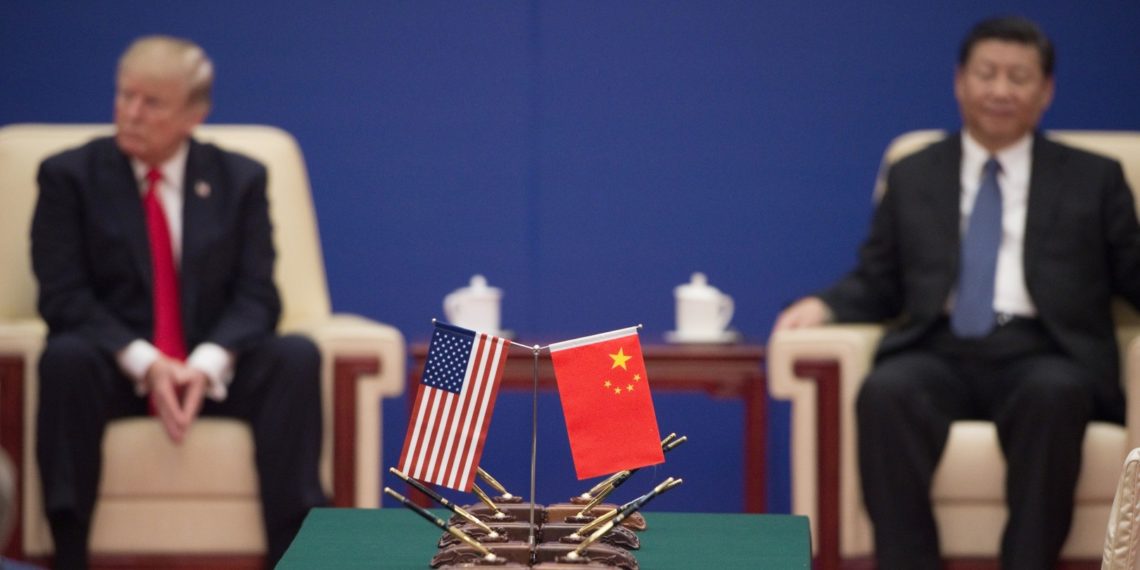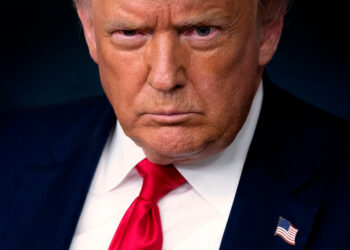The Clinton, Bush, and Obama administrations, a large number of American businesses, academics, and journalists have sold the American people a seemingly plausible idea: that even though China was run by a vicious, communist dictatorship, the significant steps that the nation had taken in the late 1970s to liberalize its economy would inevitably lead to political liberalization.
The almost missionary zeal with which this idea was propagated explains, at least in part, why the United States played such a major role in assisting China join the World Trade Organization.
When China joined the WTO in 2001, it was given the “developing country” status. This allowed Beijing to levy high tariffs on imports from the U.S. and Europe, even as it benefited from low duties on its exports. The understanding at the time was that as its economy grew, China would gradually adopt market-based economic principles and commit itself to the basic tenets of liberalized trade and globalization. But this has not happened.
China initiates WTO dispute against additional US duties on Chinese imports #TradeDisputes https://t.co/Y6FrW53UXg pic.twitter.com/lmYzL060f6
— WTO (@wto) September 4, 2019
Instead, Beijing has repeatedly reneged on promises to open up the economy to American firms. In this regard, many problems plague the bilateral relationship that China has with Washington, and, more generally, with the western world.
Chinese hackers, either directly or indirectly supported by the Chinese government, have stolen the intellectual property of American firms. American firms are frequently asked to mandatorily transfer their technology to local Chinese partners as a precondition for doing business in China. The Chinese government has manipulated its currency in the past to give its exporters an unfair advantage. And finally, frequent state subsidies to Chinese firms give such firms an unmerited advantage over U.S. and other firms that receive no comparable state support.
Trusting China
Let us suppose, as some American observers do, that serious and sustained negotiations between the U.S. and China can resolve all outstanding differences in a mutually satisfactory manner. For this to be the case, we must be able to trust what the Chinese President Xi Jinping says. This is important because even though President Donald Trump will be gone either in 2020 or in 2024, President Xi has gotten rid of term limits and will be dictator for life.
Americans got a glimpse of President Xi’s credibility when they witnessed comments he made on a state visit to the U.S. in 2015. On this trip, he promised not to militarize the artificial islands on disputed reefs that the Chinese were building in the South China Sea. However, we now have incontrovertible evidence that he has done precisely what he promised not to do. We also know that he has put millions of his Uighur citizens into concentration camps while claiming that these camps were only “vocational training centers.”

The coronavirus outbreak has provided further examples of the Chinese president’s leadership qualities. In this regard, a single action stands out. On January 23, he cut off all air traffic from Wuhan to the rest of China, but he did not do the same for international travel out of Wuhan. One gets the distinct impression that even though he was trying to protect Chinese citizens from the virus, he had no problem with Chinese and other citizens exporting the virus to the U.S. and other countries.
Some prescient journalists like James Mann warned more than a decade ago that capitalism would not bring democracy to China, but we did not listen. In fact, despite repeated and gross human rights abuses, the Chinese Communist Party is more entrenched today than ever before. It is high time the U.S., as a nation, learned that it is impossible to integrate a communist dictatorship into a democratic world and that attempting to reason with a despotic regime is a Faustian bargain.
We should begin a gradual process of decoupling from China by, at the very least, bringing home the production of vital goods such as medicines and moving “China only” supply chains out of China.
The usefulness of such actions can be strengthened by using robust diplomacy to get our allies – who share these concerns – to act with us. The last thing Beijing wants to see is a combined U.S.-E.U. decoupling.
Disclaimer: The views and opinions expressed here are those of the author and do not necessarily reflect the editorial position of The Globe Post.






















